This topic is about displaying Past of punjab. (Please note the word Punjab, its about Punjab only including the undivided punjab and present day east and west punjab and punjabi speaking regions now excluded from punjab and parts of Himachal, Haryana and Rajasthan)
But one must mention the source like website, muesum, personal collection of somebody, newspaper magazine.
Name of Photographer must be mentioned if available.
Im hoping that its all about Punjab that is in Pakistan now... so here is the first addition from me:

Hiran Minar
Hiran Minar is set in peaceful environs near Lahore in Sheikhupura, Pakistan. It was constructed by Emperor Jehangir as a monument to Mansraj, one of his pet deers.
The structure consists of a large, almost-square water tank with an octagonal pavilion in its center, built during the reign of Mughal emperor Shah Jahan; a causeway with its own gateway connects the pavilion with the mainland and a 100-foot-high minar, or minaret.
At the center of each side of the tank, a brick ramp slopes down to the water, providing access for royal animals and wild game. The minar itself was built by Emperor Jahangir in 1606 to honor the memory of a pet hunting antelope named Mansraj.

Unique features of this particular complex are the antelope's grave and the distinctive water collection system. At each corner of the tank (approximately 750 by 895 feet in size), is a small, square building and a subsurface water collection system which supplied the tank; only one of these water systems is extensively exposed today.
Another special feature of Hiran Minar is its location and environment: the top of the minar is perhaps the best place in the province of Punjab to get a feel for the broader landscape and its relationship to a Mughal site.
Looking north from the top of the minar, one can see a patch of forest which is similar to the scrub forest vegetation of Mughal times, while to the west are extensively-irrigated fields, a product of the late nineteenth and early twentieth centuries, but similar in size and appearance to the well-irrigated fields of the Mughal period.
patiale wala kila mubarak( quila chowk) about 100 yrs ago...

ਮਹਤਿਆਣਾ ਸਾਹਿਬ ਵਿੱਖੇ ਬਣਿਆ ਸਿੱਖ ਇਤੀਹਾਸ ਨੂੰ ਦਰਸਾਉਂਦੀਆਂ ਮੂਰਤੀਆਂ

ਇਹ ਸ੍ਰੀ ਸਾਹਿਬ ਗੁਰੂ ਗੌਬਿੰਦ ਸਿੰਘ ਜੀ ਵੱਲੋ 1699 ਈ: ਵਿੱਚ ਅੰਮ੍ਰਿਤ ਸ਼ੰਚਾਰ ਲਈ ਵਰਤਿਆ ਗਿਆ ।

At 4:30 p.m. on April 13, 1919, Brigadier General Reginald Dyer opened fire on an unarmed
gathering in Jallianwala Bagh. 1,650 rounds were fired into the complex, with the narrow
only exit blocked by the troops. Close to 2000 people died either directly hit by bullets
or by jumping into the well to escape from the bullets. Most of those that died were not
freedom fighters but rather villagers that had arrived in Amritsar for the Indian festival
Baisakhi and had gathered in the park.
India was at a crossroads. World War 1 had ended and the spirit of freedom was abundant.
Riots were increasing across the country. On April 10, two Punjab Congress leaders, Dr.
** Kitchlew and Dr. Satyapal, were deported to the Kangra Valley. The day before
Gandhiji had been arrested. On the Morning on April 13th, Brigadier General Dyer's troops
marched through the city and declared that no congregation can happen in Amritsar. In the
evening, over 20000 Indians gathered in Jallianwala Bagh, some to visit the park and others
to listen to a set of speeches condemning the Rowlatt Act. When the troops arrived they
gave way no warning, they made no attempt to quietly disperse the crowd. They blindly shot.
Dyer, who had his orders from General Dwyer, did not regret his act and was soon relieved
from his duty after an investigative commission found the shooting to be unjust. However
Colonial India forgave him and he retired in comfort. General Dwyer however, was hunted
down by Udham Singh in England and shot. Though very late, he paid the just price for
the massacre at Jallianwala Bagh. To millions of Indians, this place will always be a
blood stain on India's struggle for freedom.
Jallianwala Bagh Memorial

Blocked by the British

The narrow exit

The Indian Oil flame - in remembrance fo the lives lost

Surrounded by walls

Bullet holes

Blood stains

The Well - that hundreds jumped into

goliyan de nishaan

angrej sipahi v punjaab ch aa ke punjabi hi ban gaye san....
aah ik pic hai jis wich angrej fouji local punjabi dress pai firde ne...
picture is of year 1897

Maharaja Ranjit Singh War Museum, Ludhiana
This International level War Museum, located on GT Road, Ludhiana – Amritsar Highway (NH-1), about 5 KM from Ludhiana Railway Station, near Hotel Amaltas, was instituted in 1999 on a 4 acres plot with a few bare essentials, today stands strong. At the very entrance stands a huge statue of maharaja Ranjit singh sitting proud and magnificent on a throne. Towards the right and left of the statue one can find tanks, apec car, anti-aircraft gun, car scout and an old sukhoi fighter aircraft, along with a massive model of the ins vikrant. Walking up several steps one is lead into the entrance hall, where on the right is a line of portraits of Punjabis, who have been awarded the Paramvir Chakra, Mahavir Chakra and Vir Chakra. On the left is a line of portraits of generals, admirals, and air chief marshals belonging to Punjab. Besides this, the museum comprises several galleries. Many of these are still awaiting material to be displayed.

maharaja Ranjit Singh da ik army chief Col. Alexander Gardner
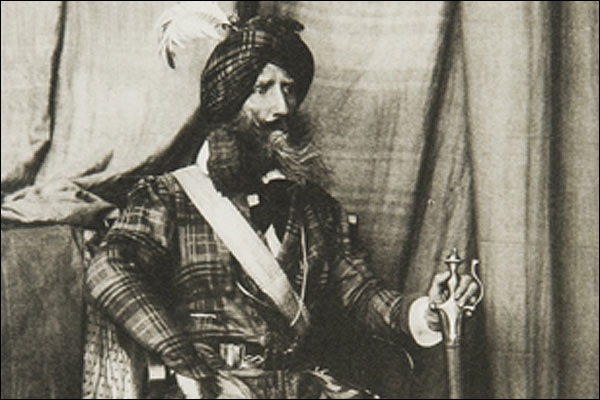
Colonel Gardner (1785-1877), was born in America, the son of an emigrant Scots doctor. After a period wandering through Europe and Asia he settled in the service of Ranjit Singh as a Colonel of Artillery. He served on campaigns in Bannu against the Afghans, 1835, commanded the Jammu Artillery.

A remarkable French postcard dated Sept 1914 heralding the arrival of Sikh troops of the 15th Sikh regiment, wearing their articles of faith. The leading soldier is seen holding the French tricolour in his left hand. (Courtesy: Paramjit Singh, Co-author :Warrior Saints, London, IB Tauris, 1999).

...
Train to Pakistan steaming out of New Delhi Railway Station, 1947

Rural Sikhs in a long oxcart train headed towards India. 1947

An old Sikh man carrying his wife

An aged and abandoned Muslim couple and their grand children sitting by the the roadside on this arduous journey.
“The old man is dying of exhaustion."
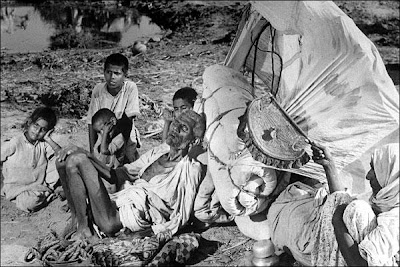
A refugee train to Punjab( Pakistan )


...
Eh hai ji Faridkot Fort di picture

Eh hai Bathinde da fort

Hazi Rattan Dargah and Gurudwara . . . Bathinda Fort

Lahore Fort Pakistab Punjab

Hiran Minar at Sheikhupura . . . Pakistan . . Former Punjab

...
Rohtas Fort, Northern Punjab
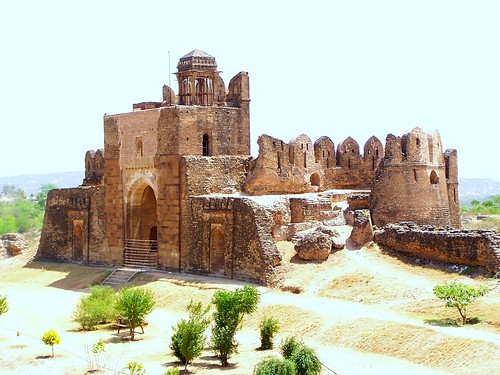
Most of the buildings in the Rohtas Fort are gone now. This is one of the ones that remain, along the fortified wall. It is located near River Jhehum,Punjab . . now Pakistan.Rohtas Fort, close to the village of Dma on the main Grand Trunk road, is perhaps the most impressive of the medieval forts still extant in Pakistan. Built between 1540 and 1545 by the Delhi ruler Sher Shah Suri to intimidate the local Ghakkar tribes and as a military base, the fort was completed by his son Ismail Shah Sun. According to Eastwick, an inscription on the eastern Takali gate (one of the fort's twelve gates) reads that the fort did cost Rs. 7,712,975 and
6 and half annas to construct. It had 68 bastions and
1956 battlements. The fort stands on a hill 130 feet
above ground and is set on a ridge protected on its
southern side by a deep ravine. The area of the fort
extends over almost 5 kilometres in perimeter. With
its undulating stone walls and intimidating massive towers, it remains even today a solid gauntlet of weathered stone, a formidable challenge to those who aspire to explore it. Here are some older pictures of the same fort :--
Rare original pic of Golden Temple, Amritsar. Clicked in 60s'.

Hiran Minar at Sheikhupura, Pakistan


these are the pics of Maharaja Rajnit Singh War Museum its worth to see this place army naal related bahot smaan a ithe kargil waar te vi ik gallery bnaee aa very beautifull place to go ludhiane ton philaur wali side te a main road to side jheee te jaake a amaltas hotel wal nu uthekni verka dudh waleyaan di dukaan ve hundi c i have some more pic of this gr8 place will post soon ithe ik light and sound show hunda braa vadiyaa



...
this is pic displayed there showing the map of kingdom of maharaja ranjit singh

kargill gallery ch bnaee hoee yadgaar a vich

a pic vi kargill section ch laee a fauji bae ready khraa puraa

purane hatheyaar displayed in museum

i love diz :love:

Quila Mubarak Bathinda
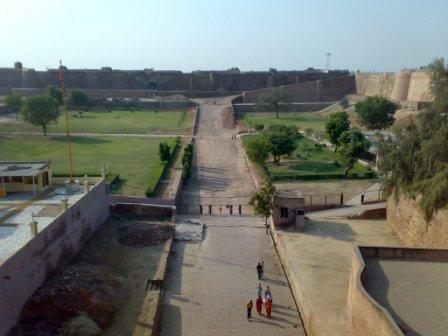
...
Coins of Maharaja Ranjit SIngh's time:
An early rupee coined by Ranjit Singh at his Amritsar mint in VS 1870 (1813 CE).
"INDIA Sikh Silver Amritsar Rupee VS1870. This is the variety with the Flower Symbol. Beautiful Rare Piece with nice, bold and strong details, very little wear on the high points and light toning. Struck under Ranjit Singh (1799-1839) and dated 1873 in his dating system, the actual year of strike being 1813."
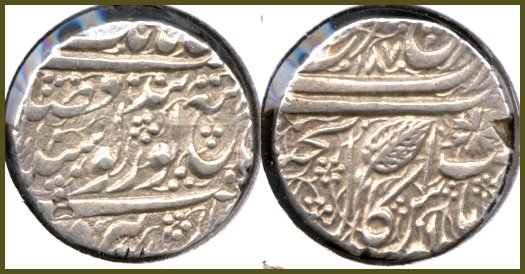
A later silver rupee, dated VS 1883 (1826)
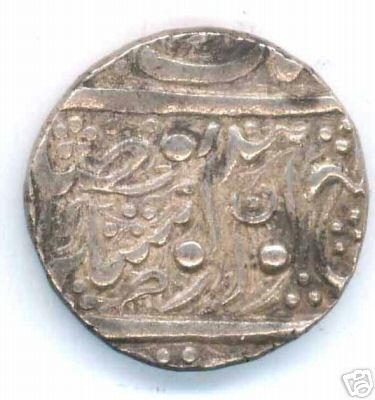
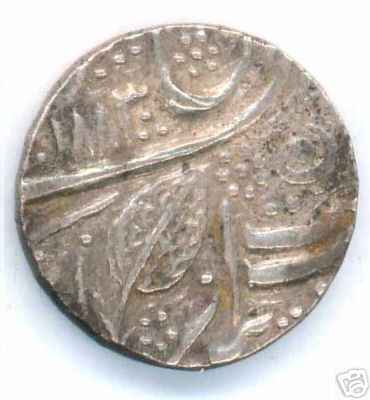
A silver rupee dated VS 1885 (1828), minted at Amritsar; blown up to show its lovely detail and workmanship
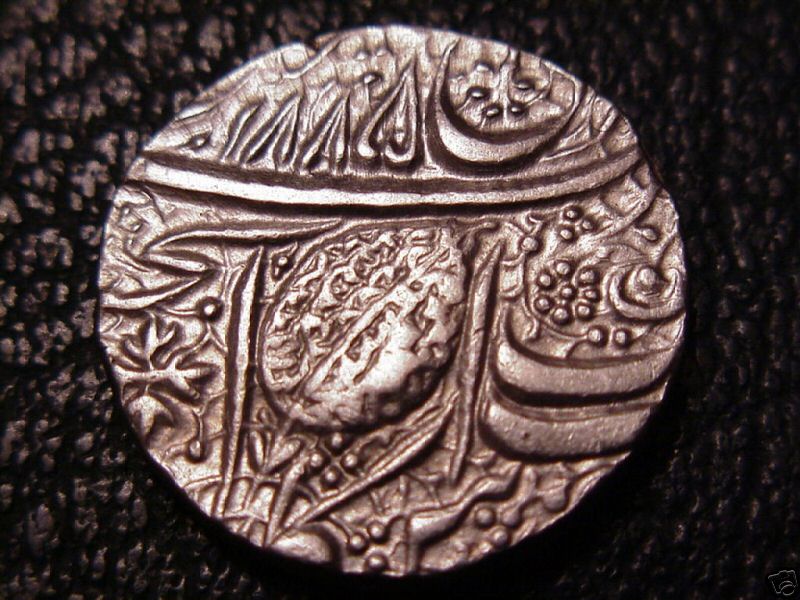
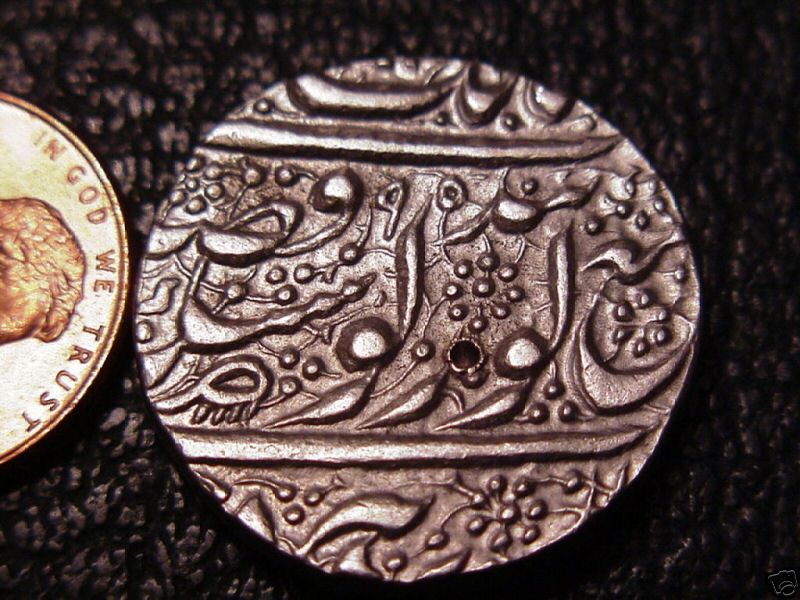
...
Some More Pice of United Punjab (East Punjab+ West Punjab).
A satellite view of the partition line, running through the heart of the Punjab

And modern political map of the same border area.

Maharaja Ranjeet Singh's Tomb, Lahore, Punjab; a photo by Samuel Bourne, 1860's* (BL)
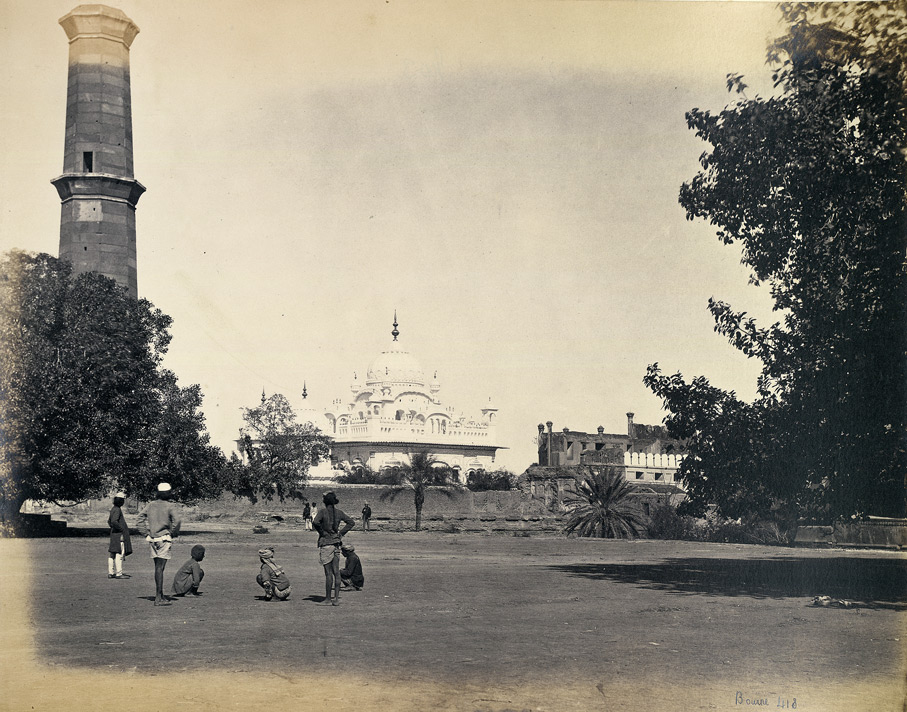
Lahore. Samadh (tomb) of Maharaja Ranjit Singh; a photo by John Edward Saché, 1870's
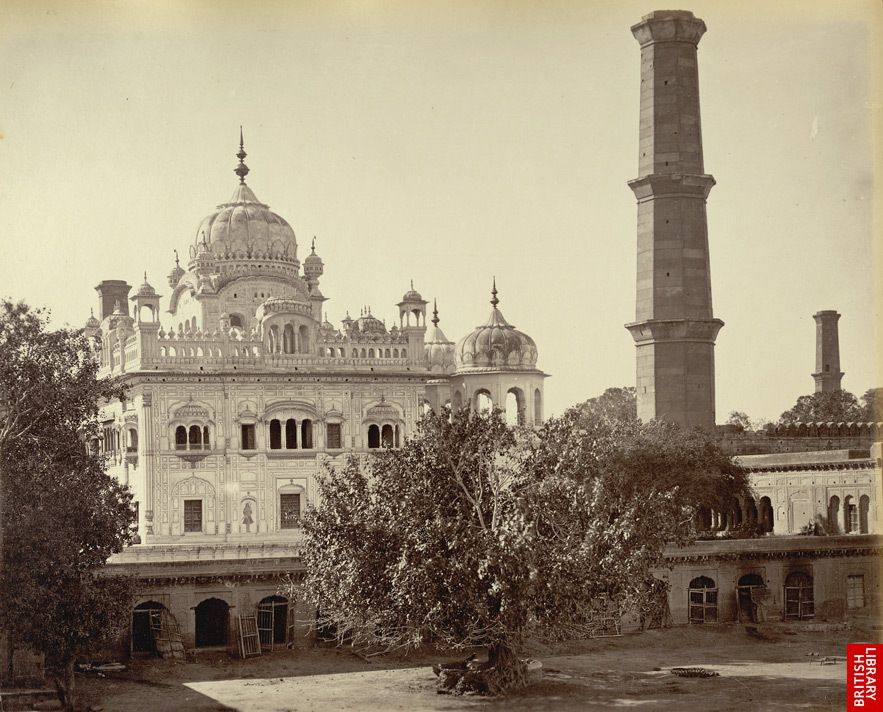
je tu rabb nu manauna ..phela yaar nu manaa .. rabb mann janda .. yaar nu manauna aukha hai ..
ban kanjjri te bulle wangu .. ghungru tu paa .. rabb mann janda .. yaar nu manauna aukha hai ..
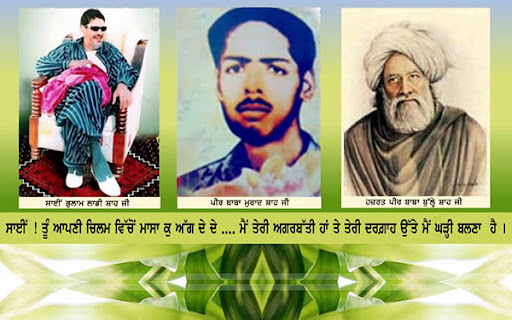
Punjab Exhibition Building

...
Newspaper showing Headline of Bhagat singh,Rajguru ,Sukhdev Execution...

Arrest of S. Udham Singh at Caxton Hall
Caxton Hall was also the scene of the assassination of Michael O’Dwyer by Udham Singh on March 13 1940. Tipperary-born O’Dwyer had been the Lieutenant Governor of the Punjab at the time of the infamous Amritsar massacre of 1919. Brigadier General O’Dyer, with O’Dwyer’s full connivance, ordered soldiers to open fire on a crowd of 20,000 Indian Independence supporters.
It was said that over 1,500 rounds of ammunition were used in just 15 seconds. The obvious result of which meant hundreds of protesters died in cold blood. Unfortunately for O’Dwyer, one of the victims was Udham Singh’s brother.
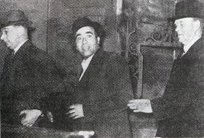
The day after the massacre the Brigadier received a telegram from Governor O’Dwyer which said:
“Your action correct. Lieutenant Governor approves.”
I wonder if the saying “revenge is a dish best served cold” exists in the Sikh language. It probably does, because over twenty years after the massacre, Singh pulled out a Smith and Wesson revolver at a meeting in Caxton Hall and fired six shots, two of which hit the former Punjab Governor, killing him instantly.
At his trial, Singh, not overly contrite, explained to the judge:
“I did it because I had a grudge against him, he deserved it.”
Shaheed Bhagat Singhji's Picture, when he was only 12 years old


Bhagat Singh Ji in Lahore College...Standing 4th from right side

Harminder Sahib

Indias of tommorow handsoms school boys in Amristor at the Golden Temple beside the holy tank







 Guests: 3872
Guests: 3872